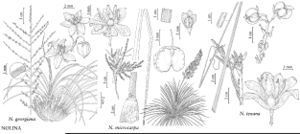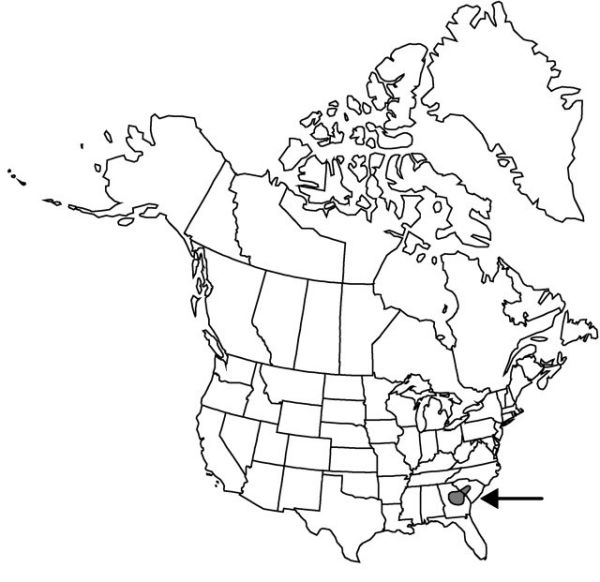Difference between revisions of "Nolina georgiana"
Fl. Bor.-Amer. 1: 208. 1803.
FNA>Volume Importer |
FNA>Volume Importer |
Revision as of 21:45, 16 December 2019
Plants acaulescent, cespitose; rosettes from bulblike bases. Leaf blades grasslike, flexible, flattened, 50–130 cm × 3–8 mm, glaucous; margins serrulate, with close-set, cartilaginous teeth; inflorescence leaf blades 2–25 cm. Scape 6–14 dm, glaucous. Inflorescences paniculate, 9–13 dm × 10–25 cm; bracts caducous, 4–10 mm, glaucous; bractlets white to tan, to 2.5 mm. Flowers: tepals yellow-green to tan, 1.9–2.4 mm; fertile stamens: filaments 1.4–1.9 mm, anthers 0.7–1 mm; pedicel recurved in age, proximal to joint 1–3.5 mm, distal to joint 3–11 mm. Capsules symmetrical, winged, obovate, 6.5–8 × 5–7 mm, rounded basally, notched apically. Seeds loosely invested in capsules, rounded, 3.2–4.7 × 2–3 mm.
Phenology: Flowering spring.
Habitat: Sandy soil in pinelands, savanna, turkey-oak woods
Elevation: 0–100 m
Discussion
Nolina georgiana is fire-tolerant and is probably fire-dependent. Nowhere is this species common and it should be investigated for listing on state rare and endangered species lists.
Selected References
None.

